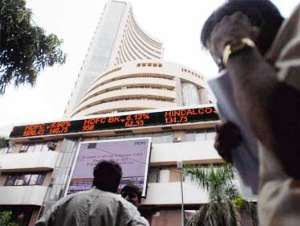Rajeev Chandrasekhar, Member of Parliament - Rajya Sabha tells exclusively to CNBC-TV18 that he is ‘underwhelmed by the new draft telecom policy .’ According to him, the policy has not really laid out a real roadmap for more unified and much more holistic approach to growing telecom in the country. Therefore, he believes this has been a lost opportunity.
“We needed to improve the whole regulatory environment and fix the Telecom Regulatory Authority of India (TRAI), which has been the cause of a lot of confusion in the last few years,” he said in an exclusive interview. He goes on to say that the exit and surrender policy inserted by TRAI are unnecessary. “This is a free market and I believe there should be no restrictions for investors to invest and exit,” he adds.
Below is an edited transcript of his interview with Shereen Bhan and Siddharth Zarabri. Also watch the accompanying video.
Q: What do you make of the new telecom policy announced by the Telecom Minister?
A: I am abroad, so I really haven’t seen the details and the fine print of it. But prima facie, I am a bit underwhelmed by the policy. Going into this, we clearly knew what the objectives were. We needed to improve the whole regulatory environment and fix the Telecom Regulatory Authority of India (TRAI), which has been the cause of a lot of confusion in the last few years. We needed to address the broadband penetration in the country; we are clearly lagging behind wireless in terms of broadband. We also need to fix some of these issues of licensing and spectrum availability and so on and so forth.
Now I think what the policy seems to have done is essentially address the issues that are emerging from the controversies of the past few months and years. It has not really laid out a real roadmap for more unified and much more holistic approach to growing telecom in the country. Keep in mind that telecom is not just wireless; telecom is a broadband, attracting investments into broadband, about fixing this pain of having a TRAI that speaks with both sides of it’s mouth all the time and fixing this whole independent regulatory framework. So we need to address these fundamental issues in the policy, which I think from what I read and hear we have not and that would have been a lost opportunity I believe.
Don't miss: Roaming charges removal may impact pricing of Bharti, Idea
Q: Let’s talk about what he has actually articulated and announced and that is really doing away with domestic roaming charges. Also he has spoken about ‘encouraging re-farming of spectrum.’ So while the speculation was that the government will finally come out with the details of how that spectrum will be re-farmed, the fact of the matter is that Kapil Sibal has used the word ‘encouraging re-farming of spectrum’, which seems to suggest that it would be voluntary as opposed to be made mandatory by the government?
A: I don’t believe this is a policy issue; this is really an administrative issue. For example, one India is a 15 minute administrative decision to say that roaming rates will be brought down; Europe has done recently. So it is not really part of an architecture of a policy that will sustain the sector for the next few years. It is something that can be done very quickly.
On the issue of spectrum re-farming, I really don’t understand what that means. I am not sure if it’s an attempt to allow the spectrum sales between companies who have it, but don’t have the customers and some sort of a soft backhanded way of merging companies and their assets, in this case the spectrum as an asset. So I am not sure what it means. It sounds really great, but I still believe and I maintain that there are many other fundamental policy issues that should have been address in the NTP 2011; issues that would have addressed the problems that we have today from NTP 1999. So I believe it was a lost opportunity and I hope this was not a last word on that.
Q: NTP 2011 says that the government will frame an exit policy which will be different from a surrender policy. How should an exit policy operate in this environment for those telcos licensed in January 2008, if at all you agree that there should be an exit policy of some sorts? And how can it be different from a surrender policy?
A: No you see I believe a lot of these nomenclatures have been inserted by the TRAI to make life completely difficult. This is a free market and I believe there should be no restrictions for investors to invest and exit. At the same time, there ought to be clear obligations for the investors to do what they are supposed to do under the license agreement. So you can’t have a situation where companies that have not let the roll out obligation have been given an exit policy. Now it cannot be the Government of India’s telecom policy to provide for exit policy for investors. Investors make investments and wither succeed or they fail; this is a market issue. So I don’t think the Government of India should be focused on providing for exits for investors.
Now from the recent letters between the government and ministers, it has become clear that the Finance Minister has agreed that if a company is exiting a license that it got in 2008 at 2001 prices, the government must impose a windfall tax, and the government must get a fair share of that profit. So I would argue that there is no need of exit policies for investors; if they have made a bad decision, they have made a bad decision, that’s what free markets are all about. Also, if there is an attempt to get out of the Nripendra Misra recommendations of no-MNAs, then that should not be a windfall to the investors who got these licenses in 2008 at 2001 prices without sharing part of the gain with the government.
Q: So therefore you are saying that as far as current law is concerned, an investor can exit or surrender the license and walk away from the license fee, that he must have paid as well as forfeited all the bank guarantees and doesn’t need a specific enabling law to exit. So therefore, is the intent to provide some kind of cushion or soft landing to the new telcos who are probably going to face some sort of legal action also in the future?
A: Yes, that is the interpretation that you are making and I would also make on a reading of this policy and I don’t believe that it’s the Government of India’s job to provide such a soft landing. It is not the government’s job to provide exit for investors who made investments knowing fully when what the rules of the game are.
So if the NTP 2011 is spending a lot of time creating an exit policy for investors, then I suspect that that is really not been objective of public policy. Public policy objective should focus on regulation, public interest, consumer interest and sustainable competition. Not get into areas of how to provide for exits for investors who have made wrong decision.
Q: Let me make another point here. While the TRAI has spoken about graded reduction in the annual revenue share, the DoT says in its final response that there should be a uniformed license fee of 8.5% of adjusted gross revenue (AGR) across all services. So on one hand the Minister says that revenue generation is not their intent, yet on the other hand TRAI has said that they don’t agree with the proposal to reduce it gradually to 6%. Your thoughts on this?
A: I have maintained, and a lot of people including the media are maintaining that is whole interaction between the DoT and the TRAI is extremely non-transparent and it is deliberately being obfuscated where people have no clue who is saying what. Finally, the public policy is a result of a recommendation and who is responsible for the public policy. When the TRAI is making a recommendation, it has been chopped and diced and interpreted and misinterpreted or selectively interpreted by the DoT and then they go back and talk about AGR.
We are now talking about monetization of spectrum. The whole nation is in a discussion about how natural resources that belong to the country and its people should be deployed for private use. Now in that context if the minister says the telecom policy objective is not to maximize the revenues to the Government of India that is a separate debate in itself that is an unsustainable public policy objective.












